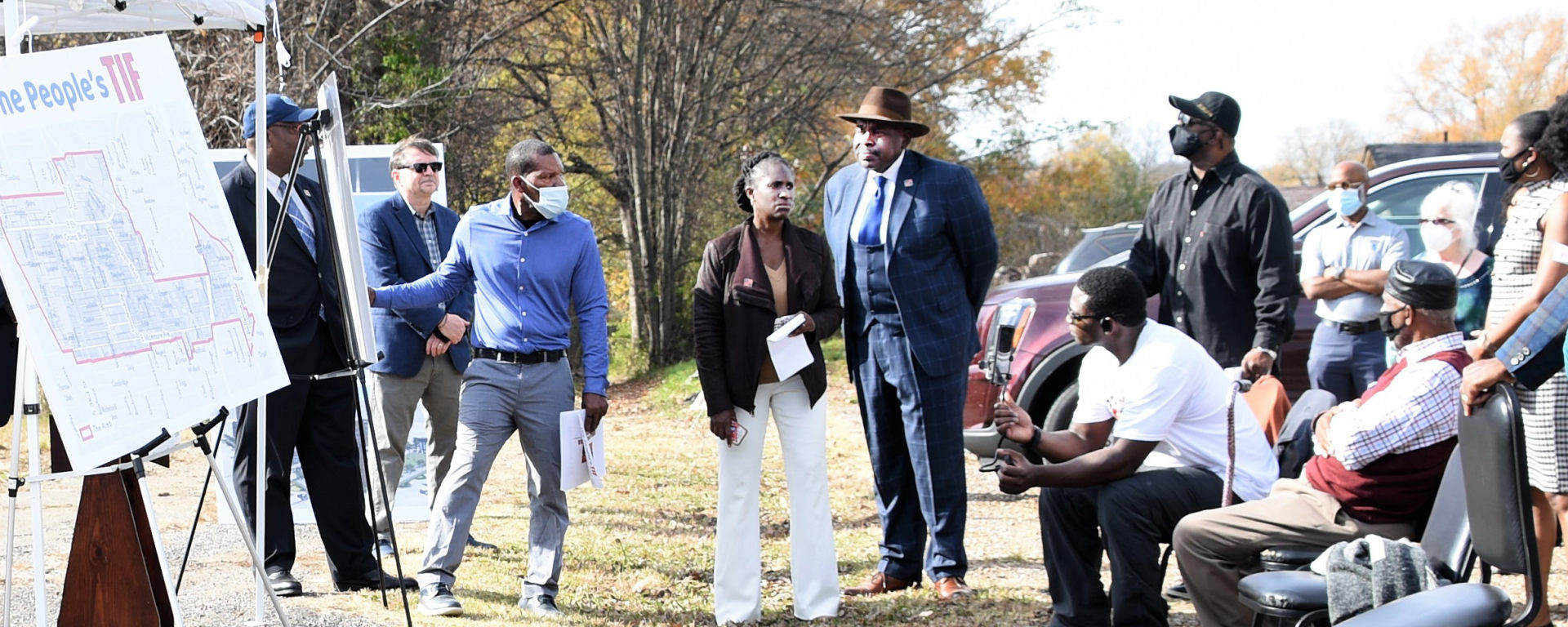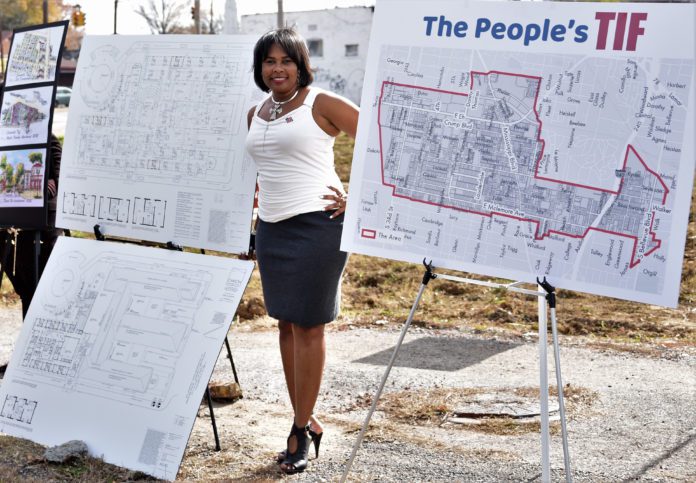by Vanecia Belser Kimbrow, Esq. —
I Love South Memphis and I always will.
Since moving to Memphis in the fall of 1991, South Memphis has held a special place in my heart because it reminds me of my Montgomery, Alabama roots and the countless hours I spent on the campus of Alabama State University South, where my grandmother was a custodial worker.
There is nothing like hearing the sound of an Historically Black Colleges and Universities (HBCU) band practicing or the smell of the cafeteria on Fish Friday’s.
Spending time at LeMoyne-Owen College with my friends as a collegiate, and later as advisor to members of the Alpha Upsilon Chapter of Delta Sigma Theta Sorority, Inc., and as a community advocate, developer and attorney, my love, commitment and eventual concern for Soulsville has only grown over the past 30-plus years.
Much like the many areas that surround other HBCUs, the Soulsville community is a textbook case study of how a once thriving hub of Black culture has steadily declined and suffered from disinvestment due to suburban flight.
In many cases, the conditions have been aggravated by the devastating effects of drug abuse, blight and crime.
For the past 20 years, there have been many efforts, including many meetings, by a coalition of my fellow South Memphis-based nonprofit leaders, business owners, community advocates and residents. We decided that we must work together to bring the change that we wanted to see for our beloved South Memphis.
In 2019, under the leadership of Shelby County Commissioner Reginald Milton, who also serves as the executive director of the South Memphis Alliance (SMA), the SoulsvilleUSA Neighborhoods Development District (SNDD), was born.
The organization brought together the collective skills and resources of some of its most noted community leaders, including the Rev. Dr. Christopher Davis, LeMoyne-Owen College trustee and senior pastor of St. Paul Baptist Church); Marlon Foster, executive director of Knowledge Quest; Jeffrey Higgs, executive director of the LeMoyne-Owen College CDC; Rebecca Matlock Hutchinson of South City Opportunity Revitalization Empowerment CDC; LarJuanette Williams of the Black Arts Alliance and myself (Music Magnet Village Development) under a single umbrella to strengthen long standing individual efforts to revitalize South Memphis.
The group would provide a laser focus on galvanizing the broader community to actualize substantial economic investment into South Memphis that would truly empower the current residents.
The unanimous approval of the Soulsville TIF on Dec. 4 by the Community Redevelopment Agency (CRA) was a major first step.
The TIF is just one tool in our expansive community tool box that will be utilized to incubate a rebirth of South Memphis by the people, for the people and of the people.

As far back as 2012, I can recall discussing with Higgs and Cardell Orrin, executive director of Stand For Children), how we should pursue a TIF for Soulsville after working as developer’s co-counsel for the Hope VI and TIF funded re-development of Uptown.
I witnessed how that TIF was paired with other government subsidies and incentives and private developer investment to transform that area.
It was clear that it would take a similar public-private partnership to restore South Memphis to its former glory – a time when the area was a vibrant and thriving hub of Black excellence, bursting with Black culture, excellent schools, power house churches, successful Black-owned businesses and concentrated Black wealth.
Soulsville and its adjacent neighborhoods, including Gaston Park, Gaslight Square, Bellevue, French Forte, Vance Avenue and the newly named South City, has not seen significant investment and development for more than 20 years. While government incentive programs and solo work of the various nonprofits have served as a band-aid on the pervasive challenges South Memphis has faced, those efforts have not been expansive enough to effectively cure the systemic ills that have consumed the community.
But that tide has now seemingly changed. A trio of benefits have now converged to make this the right time to seed South Memphis.
The Soulsville TIF, if approved by the Memphis City Council and the Shelby County Commission could possibly be the missing crown jewel needed to launch a multitude of public and private projects. The results would include large scale investments into the community, including concentrated blight remediation, a grocery store, a tech center, new rental and single-family housing, a multitude of small businesses, a cultural arts center, improved street lighting and other public green spaces and community gardens.
Soulsville already is designated as a redevelopment district in the Memphis 3.0 plan and is listed as an Opportunity Zone by the federal government. These designations, without the TIF have done little to change the face of South Memphis over the past five years.
However, the federal funds allocated to Memphis due to COVID-19 and the pending TIF should be leveraged as “gap funding” to push forward many planned development projects.
By linking the city’s Accelerate Memphis – Soulsville Small Area Plan and the variety of funds that are slated for community development, the designated projects that are already underway by SNDD member organizations, Soulsville could receive a significant economic boost that’s long overdue in an expedited time frame.
If the SNDD group can get even half of the fiscal support and commitments pledged by the city, county, area big businesses and local banks for on-going projects in other areas of the city, it would be the most historic and momentous investment in an African-American-led development team in recent history.
The time is now for an equitable commitment to the People’s TIF and the existing community groups that have led the work in Soulsville and South Memphis for over 20 years.
Our city and county leaders have committed to empowering minority businesses and investing in historic African-American communities. This is the perfect opportunity to make that shift.
(Vanecia Belser Kimbrow, Esq. of Music Magnet Village Development is a Memphis-based lawyer.)




